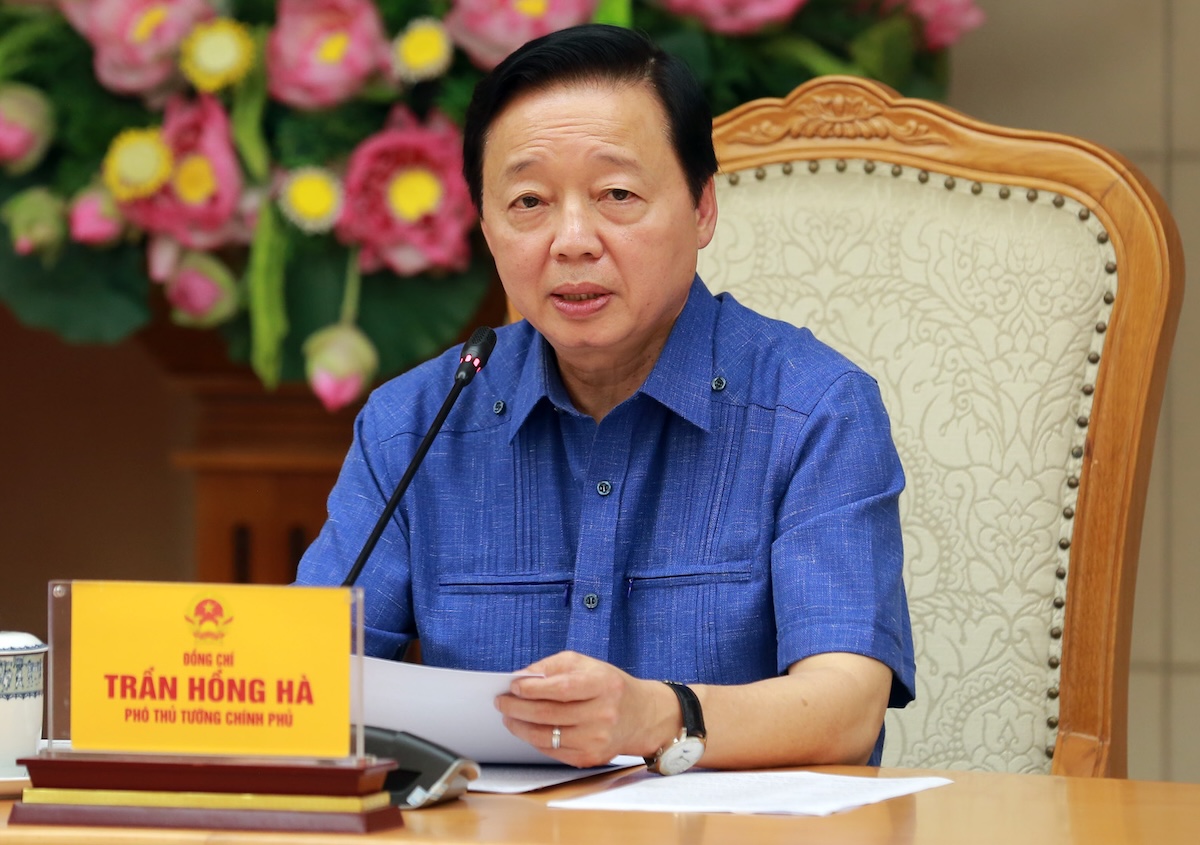Ha made these remarks during a meeting on 5/8 with various ministries, sectors, and 17 localities to discuss revisions to regulations related to land-use fees and land development funds (Decrees 103 and 104).
Under current regulations, when converting agricultural land to residential land, citizens must pay the entire difference between the prices of the two land types, instead of the previous 30-50% rate. Coupled with land price adjustments in many localities, the land-use fees payable upon conversion have increased dramatically, in some cases multiplying several times. This has presented a challenge for localities implementing the 2024 Land Law.
At the meeting, the deputy prime minister emphasized that fees for land-use conversion must have a clear basis, including a clear reason for collection and adjustment reductions. He also called for defining responsibilities between the State and enterprises, and avoiding waste of land resources.
He highlighted the need to differentiate between groups when calculating land-use conversion fees. "For citizens purchasing land for the first time to build a home, the fee must be affordable, ensuring their rights and practical access. Those who leave land idle, speculate, or delay project implementation must be handled differently," he added.
 |
Deputy prime minister Tran Hong Ha at the meeting on 5/8. Photo: VGP |
Deputy prime minister Tran Hong Ha at the meeting on 5/8. Photo: VGP
The government has assigned provincial People's Councils to determine specific collection rates based on local conditions, including the difference between land areas within and outside the limits for land-use conversion. Localities are also permitted to implement policies exempting or reducing land-use fees for the poor and residents in disadvantaged areas.
In the draft amendment to Decree 103 on land-use and land-rental fees, the Ministry of Finance proposes a collection rate based on a percentage, ranging from 30-50% of the price difference between the two land types, instead of the current full difference. This means households converting agricultural land to residential land could have their land-use fees calculated using the previous method.
Regarding Decree 104 on the land development fund, the current revisions focus on capital management, revenue and expenditure, and the mechanism for handling pre-advanced capital. This aims to ensure effective fund operation and better support land acquisition, compensation, and resettlement for projects.
Deputy prime minister Tran Hong Ha stated that the 2024 Land Law represents a significant reform based on practical needs and the demands of the people. However, if the guiding decrees lack clarity and simplicity, consistent implementation at the local level will be challenging. He urged ministries and sectors to continue reviewing and refining regulations to suit the specific characteristics of each region.
Phuong Uyen












